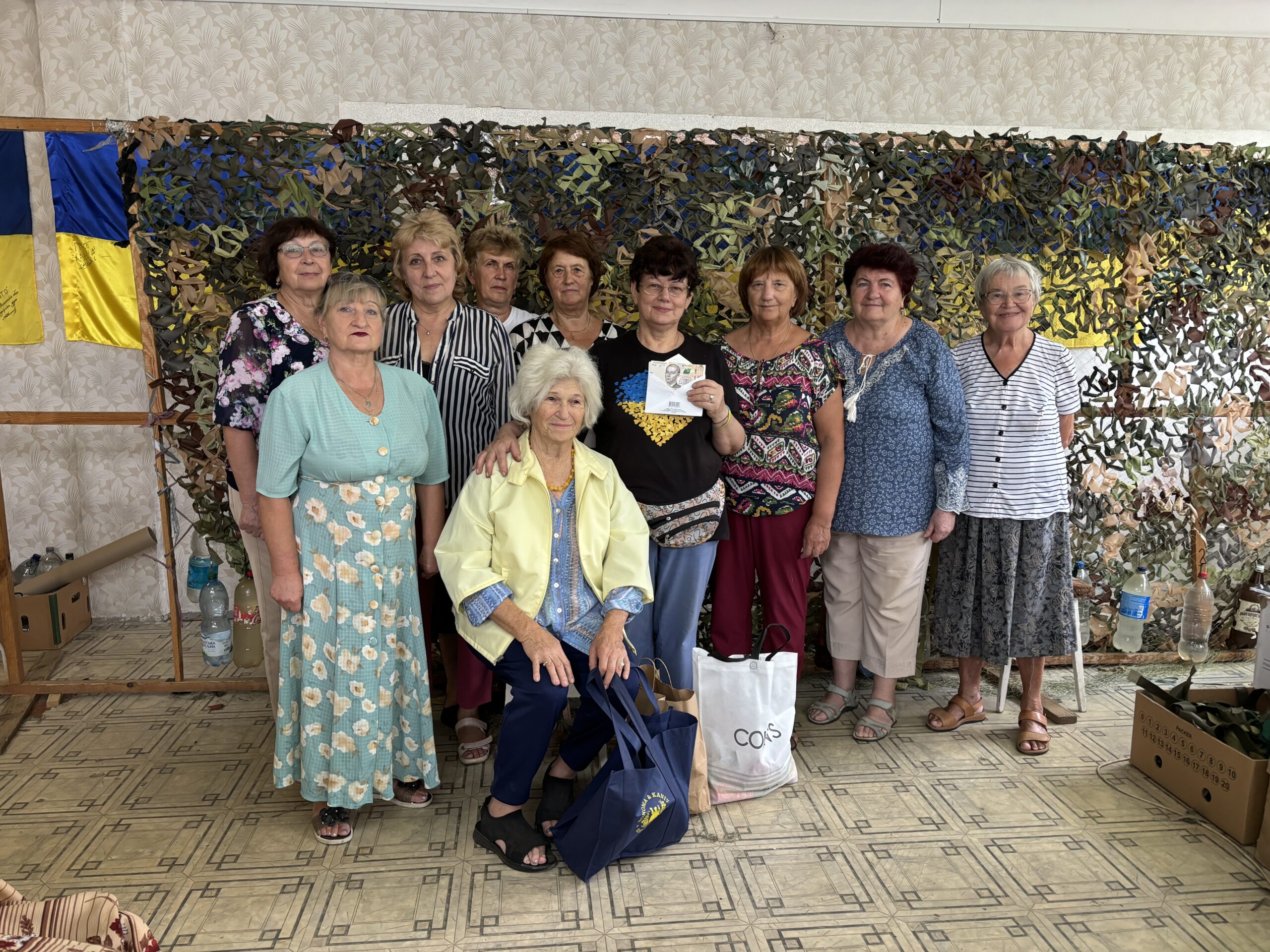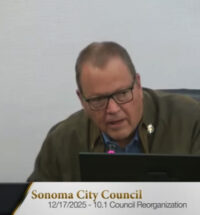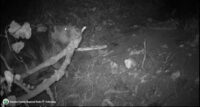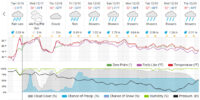By Tarney Baldinger
What follows is a purely subjective report. I did not travel as a journalist. I traveled as a concerned human being with years of experience in Ukraine.
When I was in Ukraine this fall, I was touched and humbled by the tenacity, resilience and good spirits of the people. Everyone has been profoundly affected by the war, which has been ongoing for nearly eleven years, since Russia’s invasion of Crimea. Many have suffered grievous losses, yet people remain kind, generous and open. How many times, when I was in a pickle, did someone come forward cheerfully and offer to help? A stranger would carry my things, or walk blocks to show me the way, always with a smile and a genuine, “It’s nothing.” Helping others is a way of life. One woman devoted two hours to helping me navigate bureaucracy at the post office in order to mail to Sonoma more crafts and fine art to raise money for the troops.
In my experience, Ukrainians generally have a very positive attitude. They honor and compliment one another as a matter of course. They celebrate and appreciate one another. My friend Lyubov, a painter in Kaniv, wrote me recently, “Today I recharged the batteries of the lantern that you gave me, and joy seized my soul.” This unabashed generosity with positive feelings is common.
They appreciate their lives. One sweltering afternoon a few years ago, I was greeted cheerfully by Iryna, who had lost everything in occupied Luhansk. “How are you?” she asked. “Very hot! How are you?” She threw her hands up over her head and declared, “I am alive!” I will always remember how her face shone as she said it.
People are not naïve. They are not ignoring realities, yet they remain optimistic. A common saying is, “Vse budeh dobre.” All will be well. They are deeply grateful to the troops. They frequently greet one another with, “Slava Ukraini.” Glory to Ukraine. The grateful answer is, “Heroyam Slava,” to the heroes, glory.
Overall, life seems deceptively normal. Thankfully, I did not see destroyed buildings. Thankfully, I did not witness a war funeral, although I did in 2015. I did not see any of the huge cemeteries with endless rows of black marble headstones with large flags waving over them, though I did see extensive displays of photographs of soldiers who had died, some as long ago as the beginning of March, 2014, when Russia invaded Crimea. Such human faces! Such a wide range of personalities. So many people I would have loved to have known.
In L’viv, a poignant display showing photographs of the children of soldiers includes quotes from each child. “My father is a great hero. I want to be just like him.” “I will invent a rocket so that I can go up to visit my Papa in heaven.” “I don’t want my papa to be a hero. I want him to come home.”
The first sound of war I heard was a generator set up outside a bus station. It is a common sound, for outages are frequent. In Kyiv, which comes under serious attack repeatedly, there are lengthy power outages, which leave people in the dark, and now critically, in the cold. Outages and air alarms also stop trolleys and trams, leaving passengers like me to walk the rest of the way. And of course, elevators do not function. Fortunately, I was staying on only the fifth floor. In Kaniv, in the four weeks I was there, there were only occasional brief outages, but now there is a pattern of four hours without power for every two hours with.
Several nights a week in Kaniv I lay awake listening to artillery fire from somewhere up the hill, punctuated by an occasional explosion. My hosts explained that they were shooting at drones passing overhead. As Kaniv is centrally located, drones and rockets frequently fly over, sometimes quite low. Each explosion is a drone being hit. The artillery has guidance systems to avoid drones being shot down over inhabited areas. After all, they do not pop like soap bubbles. They fall as dangerously heavy and sharp shards.
People ignore most air alarms and just go about their business, but students must go into shelters. The impact on schooling is tremendous. Can you image how that affects teaching? Many of the students are traumatized. Some are from war zones where they lost their homes. Many are tired, having been kept awake by the sounds of war. Svetlana, my gracious and beautiful hostess in Kaniv, is a teacher. Always upbeat and cheerful, there are days when she comes home exhausted, discouraged and grieved. I cannot image the strain teachers are under.
How are people feeling? My dear friend, Lyubomir, said to me sadly, “I have come to the conclusion that the difference between Russians and Ukrainians is that Ukrainians respect human life.”
Perhaps you have seen video clips of Ukrainian funeral processions. There are many. People kneel along the road for long distances, tossing flowers in the path of the hearse. Crowds follow, carrying huge bouquets and funeral wreaths. I always think, Wow. That must be a really special person. Now I understand. Yes, that was a really special person. A human being.
I came away with the impression that there are three unspoken rules in this dreadful time. 1.Live your normal live as fully and completely as you can. 2. Uplift yourself and one another. Dress nicely, greet one another, smile. 3. Do not cry in front of others. You do that when you are alone in your home.
After our November election, several friends messaged me. From Lyumila, the coordinator of the Kaniv volunteer center, which has worked for ten years to protect, nourish, and support the troops: “Don’t worry so much. Yes. People voted with their stomachs … What is Ukraine for them? Of course, the new-old president is unpredictable, eccentric, populist. But everything will be GOOD. What was, what will be – we will see. We love you.”
My philosophical friend, Volodya, wrote, “A lot depends on people’s consciousness and their participation in the life of the state. So we are grateful to you and other people for your help. Unfortunately, in every society, there are people whose interests are more important than the interests of the citizens of their country, and even more so than the interests of people from other countries. Yes, it is sad. However, many people have a good heart, understand the pains and problems of other people … Such people are God’s army. Such people are endowed with greater strength and love. Good deeds are done with their hands. They are role models. Love and goodness must win.” Such a Ukrainian attitude!
This Saturday, December 7, you too can support the Ukrainian troops. Charming handicraft and beautiful original art from Kaniv will be available at the Faith Lutheran Craft Fair, 19355 Arnold Drive, from 10 to 4.






Be First to Comment